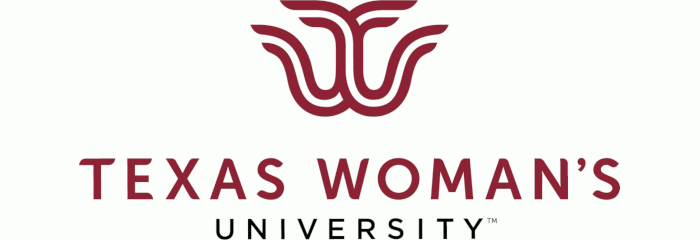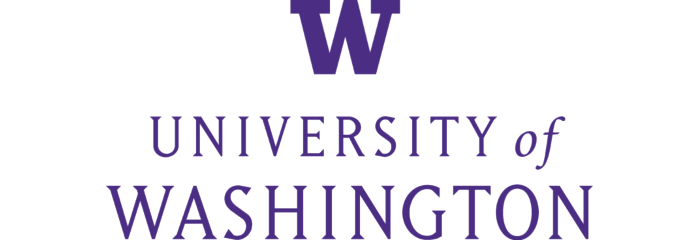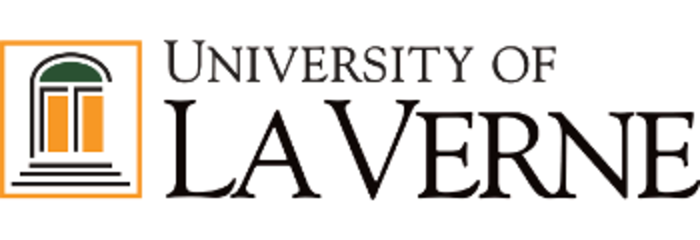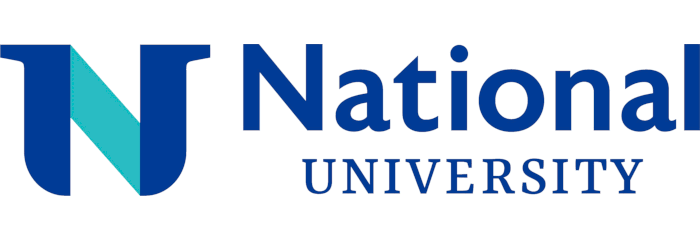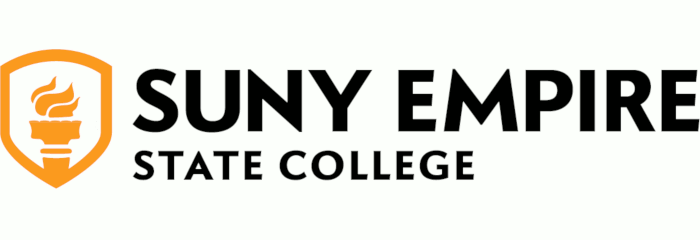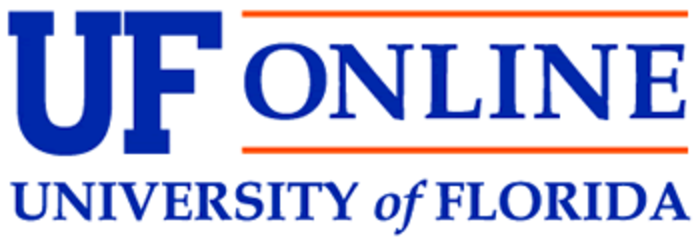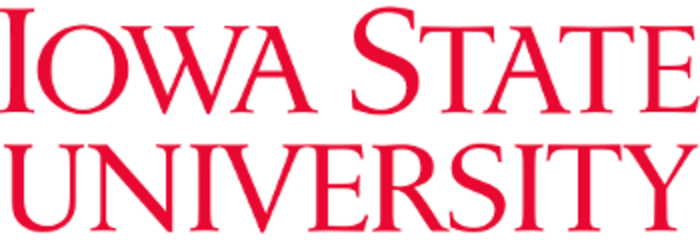Best Online Education Degrees
Our list of the best online education degree programs features accredited schools ranked by the number of education program graduates. This is an indicator of student trust and success.
Key Takeaways:
- Western Governors University ranks #1 overall with over 2,000 graduates from its education degree online.
- The University of Florida claims the top spots for both graduation (92%) and retention (97%) rates.
- The University of La Verne has a 95% recommendation rate based on student surveys we've collected.
To learn more, visit our methodology. We also interviewed two experts, including Lauren Daly, who has a PhD in Curriculum & Instruction, and Julie Ann Howlett, an instructional designer. Both shared insights on how online education programs are evolving.
Best Online Education Degrees
| Rank | School | Graduates | Annual Tuition | Median Salary | Recommendation |
|---|---|---|---|---|---|
| Western Governors University | 2,015 | $8,300 | $47,043 | 74% | |
| The University of Texas at El Paso | 269 | $16,200 | N/A | 91% | |
| Texas Woman's University | 175 | $19,440 | N/A | 94% | |
| Arizona State University, Online | 160 | $24,780 | $44,015 | 93% | |
| Central State University | 147 | $7,638 | N/A | 100% | |
| Liberty University | 140 | $11,700 | $39,866 | 75% | |
| University of Washington - Seattle | 122 | $41,997 | $57,184 | 92% | |
| University of La Verne | 80 | $19,950 | N/A | 95% | |
| National University | 75 | $4,162 | N/A | N/A | |
| SUNY Empire State University | 68 | $8,480 | $53,283 | 60% | |
| University of Florida | 62 | $15,000 | N/A | 92% | |
| Iowa State University | 55 | $27,683 | N/A | 92% | |
| Jackson State University | 55 | $11,550 | N/A | 84% | |
| Southern Oregon University | 45 | $10,170 | N/A | 91% | |
| University of Wisconsin - Milwaukee | 42 | $22,020 | $47,785 | 88% |
Best Online Education Degrees - Program Details
- Graduates: 2,015
- Annual Tuition: $8,300
- Median Salary: $47,043
- Recommendation: 74%
Why we like them: WGU is the #1 most popular online education degree program, which is determined based on the total of 2,015 graduates in its B.A. Special Education (Mild to Moderate) program. WGU offers a rare dual licensure pathway in special education and elementary education, preparing graduates to teach in both general and special education classrooms (grades K–12).
- Graduates: 269
- Annual Tuition: $16,200
- Median Salary: N/A
- Recommendation: 91%
Why we like them: Setting UTEP's online education bachelor's program apart is the hands-on, multi-sensory, and project-based assignments, such as peer observations and practical instrument-building led by dedicated faculty. We also like that career guidance is an integral part of the curriculum.
- Graduates: 175
- Annual Tuition: $19,440
- Median Salary: N/A
- Recommendation: 94%
Why we like them: TWU has targeted tracks, including Bilingual Education, Deaf and Hard of Hearing, ESL, and Special Education, as well as an accelerated bachelor's-to-master's pathway. The program prepares you to work with culturally and linguistically diverse students, a reflection of its status as a Hispanic-Serving Institution.
- Graduates: 160
- Annual Tuition: $24,780
- Median Salary: $44,015
- Recommendation: 93%
Why we like them: A defining feature of the ASU Online Educational Studies program is that you can customize your studies around specific career interests and industry tracks, which is rather uncommon in online education pathways. We especially appreciate the program’s two-semester internship and extensive applied learning projects.
- Graduates: 147
- Annual Tuition: $7,638
- Median Salary: N/A
- Recommendation: 100%
Why we like them: CSU’s primary education online program has a three-tiered clinical path that involves observation, methods, and a substantial 12-15 week student teaching placement. Another distinctive feature is the regular integration of career and alumni mentoring.
- Graduates: 140
- Annual Tuition: $11,700
- Median Salary: $39,866
- Recommendation: 75%
Why we like them: We are particularly impressed by Liberty's requirement of 300 supervised hours satisfying a key prerequisite for ACSI certification, underscoring meaningful real-world practice and value for those interested in Christian education settings.
- Graduates: 122
- Annual Tuition: $41,997
- Median Salary: $57,184
- Recommendation: 92%
Why we like them: UW Seattle program has an explicit focus on community-based, equity-driven, and practice-based learning. This allows you to continue your work or volunteer experiences in early education as part of your degree requirements. The curriculum’s approach is rooted in diversity and inclusion training you to teach in equitable learning environments across diverse communities.
- Graduates: 80
- Annual Tuition: $19,950
- Median Salary: N/A
- Recommendation: 95%
Why we like them: ULV's standout feature is the Integrated Teacher Preparation Program, which enables you to fulfill credential prerequisites while still an undergraduate, streamlining your path to the classroom. The curriculum emphasizes community service, fine arts integration, technological fluency, and social-emotional growth.
- Graduates: 75
- Annual Tuition: $4,162
- Median Salary: N/A
- Recommendation: N/A
Why we like them: All courses with early childhood education (ECE) prefixes require hands-on field experiences in approved early learning settings, underlining a strong applied learning ethos. The curriculum is built on the foundations of play, practice, and policy, and emphasizes field mentorship from practicing professionals.
- Graduates: 68
- Annual Tuition: $8,480
- Median Salary: $53,283
- Recommendation: 60%
Why we like them: Unlike traditional teacher-prep programs, this 100% online degree is designed for students interested in education-related careers outside of licensure-based teaching. You can take courses according to your personal objectives, whether it's education policy, community outreach, instructional support, or curriculum development, to name a few.
- Graduates: 62
- Annual Tuition: $15,000
- Median Salary: N/A
- Recommendation: 92%
Why we like them: UF sets itself apart in the online education sciences space through its array of specialized tracks, such as Education Technology, Disabilities in Society, and Educational Psychology and Research. Rather than resulting in teaching licensure, this is a non-certification degree designed for roles in policy, technology, and support services.
- Graduates: 55
- Annual Tuition: $27,683
- Median Salary: N/A
- Recommendation: 92%
Why we like them: ISU's education degree is part of the IDEA consortium, providing you with access to leading faculty and collaborative learning across multiple partner universities. This original structure exposes you to perspectives and best practices beyond a single institution.
- Graduates: 55
- Annual Tuition: $11,550
- Median Salary: N/A
- Recommendation: 84%
Why we like them: JSU’s online BS in Child Care and Family Education focuses on career preparation in early childhood settings outside of licensure frameworks. This non-licensure degree is meant for those interested in roles like Head Start professionals, childcare administrators, and teacher's aides.
- Graduates: 45
- Annual Tuition: $10,170
- Median Salary: N/A
- Recommendation: 91%
Why we like them: SOU boasts an extensive network of articulation agreements with community colleges across Oregon and northern California, enabling seamless credit transfer and structured degree completion pathways. Another special element is SOU's collaboratively designed Capstone experience, which integrates community-based learning and portfolio development.
- Graduates: 42
- Annual Tuition: $22,020
- Median Salary: $47,785
- Recommendation: 88%
Why we like them: Belonging to UWM’s program, you benefit from a diverse learning environment where more than half of your peers are students of color, which fosters a rich perspective on social justice and urban education. The curriculum includes hands-on fieldwork with local leaders.
What Experts Say About Online Education Degrees
We asked two experts with deep experience in digital learning and instructional design to weigh in on what today’s students need to know about pursuing online education bachelor's degrees, as well as what comes next. They discuss everything from state licensure to AI tools and microcredentialing, sharing their best advice for students interesting in pursuing an education bachelor's online.
Online Teacher Prep Is Getting Smarter — And Students Need to Be, Too

Academic Coach, PhD in Education
"As someone with a PhD in Curriculum & Instruction, a former full-release faculty member and course creator at Liberty University, and now a higher education strategist at College Hacked (where I help clients fast-track their degrees — many of them in education), I've seen firsthand what it takes to thrive in today's education landscape, both online and off.
Here's my take on the current state of online teacher preparation:
Outside of traditional classroom teaching, online grads often find their way into instructional design, curriculum development, ed tech, and academic advising. For roles in school leadership or policy, additional licensure or graduate study is usually needed.
If you're aiming for anything that involves public school licensure, double-check the fine print for your state.
I always tell my clients: If you're aiming for anything that involves public school licensure, double-check the fine print for your state. If you're completing an online program through a school in another state, you may need to meet additional requirements in your own state to be licensed. It's not sexy advice, but it'll save you a lot of heartache!
We're finally moving past the 'discussion board and paper' model. The best programs are now incorporating more video-based feedback, simulation tools for classroom management, and coursework that directly addresses trauma-informed teaching, inclusion, and culturally responsive pedagogy.
The bar is rising, and online programs that want to stay relevant are rising with it.
Some programs have coordinators who make those connections for students, other programs require students to source their hours at an appropriate location near them. I always recommend that students start talking to their field placement coordinator way earlier than they think they need to!"
EXPERT TIP
"Don't go it alone. Build your network now. That means staying in touch with professors, engaging in your cohort, and finding mentors. And don't forget the digital spaces where you can find community! Reddit and Discord are a couple of the many options out there for online community during your degree."
Instructional Design Makes Online Learning Click (If It's Done Right)

E-Learning Professional and Instructional Designer
Online learning has the benefit of equalizing access to education... Teachers are now being equipped with unique challenges for learning in a totally tech world and creating life/work boundaries within that.
Instructional design is a fantastic field that bridges education, technology, and business. It typically requires a degree in the field and experience in specific technologies as well as project management skills.
Learners of today need to understand the appropriate use of AI, [including] what needs editing from an AI prompt to reflect their own voice and creativity. Also [they need to understand] that AI can hallucinate and is not the authoritative guide on all things.
What Is a Bachelor's in Education Degree?
Within the education field, one of the most versatile degrees is a bachelor's in education. With this foundation, you'll have the choice of working as a teacher in public and private schools or behind the scenes in an education role outside of the classroom.
Education bachelor's degrees typically fall into two categories: licensure and nonlicensure tracks. Licensure-track programs prepare students to teach at all K-12 levels by providing training in lesson planning, assessment, and effective classroom management.
Nonlicensure programs typically offer a broader understanding of the field and may cover a wider array of topics, such as instructional design, education policy, or adult education.
Most on-campus and online education programs lead to either a Bachelor of Arts (BA) or Bachelor of Science (BS). BA programs typically include more liberal arts courses in the degree requirements, while BS programs generally incorporate more math and science courses into the curriculum.
Online teaching degrees that meet teacher certification requirements are also available in elementary education, early childhood education, secondary education, special education, and other focus areas. If you're interested in working in the public school system, you will need at least a bachelor's degree and teacher certification to qualify.
If affordability is your main concern, look through our rankings of the most affordable online bachelor's in education and the most affordable online master's in education degrees for the perfect school.
Degree Requirements
To earn a bachelor's degree in education online or in-person, you'll be required to complete approximately 120-124 credit hours. Some programs may require you to have some type of field experience, such as on-site classroom observation. For a career that requires state licensure, you may also need to complete one semester of student teaching.
If you're a full-time student taking 15-18 credit hours per semester, you may be able to complete the graduation requirements in four to five years. However, if you're a part-time student balancing school with work and other time commitments, you may need an additional year or two. Some online schools offer accelerated education bachelor's programs, which you may be able to complete in about three years if you're willing to attend school year-round and carry a heavier course load.
Education Courses
The curriculum for a bachelor's in education will vary depending on whether the program is designed for classroom teachers or for other education professionals. This distinction will also influence whether internships or other student teaching experiences are required.
Some of the core Education courses that may be part of your program include the following:
Historical Foundations of American Education
In this course, students take a look back at the evolution of the American public school system across 250 years of history. Topics also include the current U.S. Department of Education, standards-based reform, and contemporary learning theory.
Human Development in Children and Adolescents
This course in psychology provides students with valuable insights into human development across the lifespan, from conception through young adulthood. Particularly, students explore biological, social, emotional, and cognitive development. Specific topics may include cultural backgrounds, family and peer influence, personality, and language.
Principles of Education
Designed to capitalize on the most current research in education, this course examines the principles educators can use to support student learning. Coursework covers topics like the effect of prior knowledge and motivation, the power of repetition and application, fair and credible evaluations, and how to provide targeted feedback.
Technology for Educators
In this course, future educators study the use of technology for two purposes: to improve teachers' efficiency and productivity and to enhance the learning experience for students. Coursework may include hands-on learning activities that familiarize educators with the tools and materials currently available.
Licensed Education Specializations
If you're opting for a teacher licensure program so you can become a teacher, you have a wide range of concentrations available to you based on your personal interests and career goals. For example, you may decide to focus on a specific grade range to become a middle school teacher or high school teacher. You may also want to specialize in teaching methods, such as Montessori or Waldorf, or work with specific groups of students.
The following are a few additional examples of optional specializations:
Early Childhood Education
Early childhood education degrees train students to become preschool and kindergarten teachers, daycare employees, and other childcare providers and work with young learners to facilitate social, emotional, and cognitive development in a safe and healthy learning environment. Students will learn about literacy for young children, ethics and professional responsibilities for early childhood educators, language development, and teaching diverse learners.
Elementary Education
Elementary education programs are and prepare future educators to work with students in kindergarten through fifth grade. Common courses for elementary education majors include teaching methods for science, math, reading, and social studies, lesson planning and assessments, teaching for diverse learners, and the use of educational technology in the classroom.
Secondary Education
Those who plan to work with middle school or high school students typically follow a degree path for the subject they wish to teach, such as biology, history, or English. Students learn how to develop a curriculum, write and give assessments, and devise methods for classroom engagement and management. Secondary education majors also take specific classes in their chosen subject, such as Shakespeare or British literature for future English teachers or lab safety for prospective science teachers.
Special Education
Teachers with expertise in special education work in school districts across the country. In addition to traditional teaching methods, future educators pursuing special education degrees study behavioral support strategies, instructional planning for learners with special needs, individualized education plans, and education technologies for mild to moderate learning disabilities.
For more online degree options leading to certification, see our list of accredited online teacher licensure programs.
Specializations in Nonlicensure Education Programs
From health and fitness programs to community education, there are many different careers available to education majors who want to work outside the K-12 classroom. Nonlicensure programs are typically offered as general education degrees, interdisciplinary studies programs, or degrees in educational studies. These programs can give you a solid understanding of education and learning needs and may prepare you for careers in adult education, nonprofit work, training and development for businesses, and other areas.
Below are some specializations in educational studies that you might find in nonlicensure-track programs:
Instructional Design
Whether you're interested in training and development for businesses or working with a nonprofit, an instructional design concentration can help you develop the skills you need to plan and facilitate education programs. Instructional design majors typically study education technology, instructional design for e-learning, contemporary issues in the field, and programs for adult learners.
Public and Community Health Education
Students in public health education programs learn about different issues that affect community health across the country. Courses may cover nutrition, exercise, stress management, substance abuse, health advocacy, socioeconomic factors that impact health, and planning and implementing wellness programs.
Educational Leadership
Although this is typically reserved for graduate programs, some colleges offer educational leadership concentrations at the bachelor's level that prepare students to work as administrators for nonprofit organizations, education advocacy agencies, daycare programs, and other areas outside of K-12 schools. Educational leadership concentrations may have a focus on equity, education policy, or social justice in education. Degrees with an educational leadership concentration can also prepare students for master's degrees in education leadership and doctoral programs in education leadership.
Adult Education
This major is also more common for graduate programs, but some bachelor's degrees offer concentrations in adult education, career preparation, or skilled and technical instruction. In addition to traditional education courses, students may learn about instructional methods for various levels of education, different skills and careers, or community engagement for adults in the workforce.
Education Careers
Many students enroll in an online education degree program to pursue a job as a teacher. You may be interested in working in early childhood education, elementary, or secondary education, but school systems also need teachers with training in special education, physical education, and other specialty areas.
An education bachelor's degree can also prepare you for careers outside of the traditional classroom, working with adults, English as a second language students, or the public. You could also pursue jobs in education advocacy, policymaking, community education, education-related nonprofit organizations, and other areas.
What Else Should You Consider?
When it comes to choosing an online education degree, there are a few different factors to consider. For education majors who want to work outside of the classroom, finding a degree program that matches your career goals is critical. Some focus on education and society and may offer leadership, education policy, or equity concentrations. Others emphasize teaching for specific groups, such as adult basic education, coaching, or community education.
If you want to become a teacher, you'll need to make sure an online program meets state licensure requirements in your area. Check that your program meets the academic requirements, is accredited, and includes enough student teaching hours to become a licensed teacher in the state in which you want to teach.
Accreditation indicates that a school's academic programs, faculty members, and student services have been evaluated for academic rigor and proven to meet standards of excellence. Besides being a potential requirement for licensure, enrollment in an accredited school may also influence your ability to obtain financial aid, transfer credits among schools, and gain acceptance into a master's program. Searchable databases of accredited colleges are available on the and the websites.
In addition to earning accreditation for the entire institution, a school can be accredited for individual degree programs, often by professional organizations, to ensure the programs are meeting industry expectations. Programmatic accreditation of online education programs may be conducted by one of two authorized agencies: the or the .
One final consideration regarding online bachelor's programs in education is structure — whether a school offers synchronous or asynchronous online courses. Students who need a more flexible schedule may choose asynchronous classes, where they can watch pre-recorded lectures, complete coursework, and participate in class discussions through forums when it's convenient for them. For those who prefer a more structured learning environment, synchronous courses might be a better option. These online classes follow the traditional classroom model and meet virtually for live lectures and group discussions during a regularly scheduled time.
FAQs About Bachelor's in Education Programs
Do You Need an Education Degree to Teach?
No, you do not need an education degree to teach. However, most states require you to hold a bachelor's degree, have some experience with teaching, and meet other requirements to earn a teaching credential.
Why Is Education Important?
Contributing to children's education is perhaps one of the noblest career objectives you can find. Effective teachers, leaders, and educational materials can have a powerful impact on a child's life, helping them to discover their strengths and abilities while building their confidence. Collectively, education provides the foundation for stable and prosperous communities.
Is an Education Degree a BA or a BS?
Whether an education degree is a BA or BS depends on the school. Some colleges offer BA in education degrees that emphasize arts and humanities courses, while other colleges offer BS in education degrees that tend to focus on math and science.
What Can You Do With an Education Degree?
An education bachelor's degree is a flexible option that can lead to a wide array of career opportunities. Choosing a licensure-track program will help prepare you to teach in K-12 classrooms, while a nonlicensure-track program may equip you for alternative careers in education, such as instructional designer or education administrator.
Student Reviews of Online Education Programs
University of Phoenix is a great option for a stay-at-home parent like me, or someone who needs a flexible school schedule. If you can learn to manage your time properly, you have a real good chance at success. Some courses offer lots of instruction and step-by-step tutorials, and others will be with minimal instruction and mostly rely on the amount of work you put in.
Review Date: 7/16/2025
Would Recommend: Yes
Helpful for Career: No
I used them online and after a semester through their social media outlets such as Facebook groups, I and my spouse were being harrassed by other students. I felt the school itself was acceptable in education but had too much social media conflict. If you go there just do yourself a favor and do not communicate with any other students for any reason.
Review Date: 6/12/2018
Would Recommend: No
Helpful for Career: No
I attend GCU and I have to say, I love it!!! I had previously went to The University of Phoenix and had nothing but trouble with everything and still managed to keep good grades. GCU is wonderful. Great enrollment counselor. When I first called about information for enrolling, he told me all the facts, all the pro's and con's of choosing this school and about my degree choice. He was extremely honest and sincerely wanted to help me choose the correct path for my future, even if it wasn't GCU. He... Read More
Review Date: 2/22/2015
Would Recommend: Yes
Helpful for Career: No
I entered Ashford Feb 2018 taking educational courses to obtain my Bachelor's degree in Education. I completed my program with high honors Oct 2019. Every time I inquired about taking courses pertaining to my content area I was rerouted to someone else, but was never answered. August of 2019 I received an email from academic advisor with an after graduation action plan. As I went through the action plan it kept rerouting me to other schools to obtain my licensing. When I finally spoke to someone... Read More
Review Date: 2/11/2020
Would Recommend: No
Helpful for Career: No
Attending Grand Canyon University has been a thoroughly enjoyable experience. I started taking classes with GCU as they visited my work. I had a great experience with a very patient recruiter and have found the staff genuinely try their best to help. There are times when it takes a bit for the left hand to understand the right hand's intent, but in general, everyone is sincere in their effort to make the experience successful. I had to take a break in my studies to move and followed my advisor's... Read More
Review Date: 6/11/2018
Would Recommend: Yes
Helpful for Career: Yes
As a full time employee, student, and family member, the online Educational Studies program allowed the flexibility I needed to return to college after a twenty year absence. The content and thinking processes associated with the degree increased my knowledge about 21st century thinking and life skills necessary to succeed in today's world. The degree opens opportunities outside the classroom that are rewarding and fulfilling. Professors were respectful, helpful, and communicated at a professional... Read More
Review Date: 3/13/2018
Would Recommend: Yes
Helpful for Career: No
I could not give Arizona State University's online program enough praise. I feel that I was able to connect with my classmates and teachers throughout all of my courses. I was challenged throughout my time a ASU and always felt supported by the school itself. The online program was easy to keep up with and I found it very easy to go at my own pace. Although there are due dates each week, I was able to work ahead when I wanted to. This was incredibly beneficial for me as I also work full time. I am... Read More
Review Date: 6/12/2018
Would Recommend: Yes
Helpful for Career: No
I have 10 years in education as an aide/secretary/substitute. I finally decided late in 2017 to go for my teaching degree. I had 3 mentors, had to get licensed in Utah and my home state, but I finished 79 hours in 15 months (include student teaching) and working full time. I am dual certified in Special education and Elementary education. I passed my state teaching exams first try, math by 1 point (my weakness). I went to an online school years before and dropped out, it was crazy. WGU had quirks.... Read More
Review Date: 1/30/2021
Would Recommend: Yes
Helpful for Career: No
Don't get discouraged. I STRUGGLED IN HIGH SCHOOL. I was nervous about going back to school. Yes, signing up is painful process. Once you do it takes off. The instructors are amazing. They work with you. You need to reach out. If you work. Then this school will work. Homework isn't unreasonable. Yes you have to do your best. In high school I was a C student . I now get A's And B's. Though it it's an accelerated program ,they make it work, free tutoring for your whole family. I absolutely love this... Read More
Review Date: 10/21/2015
Would Recommend: Yes
Helpful for Career: Yes
I choose GCU because they not only offered a duel degree in education but I was also able toget the Teach grant. This grant is very important to me as I need as much loan fogivness as possible. My academic advisor is amazing, the teachers have beed great . I have learn so much. I am starting my internship next week. Supper excited. I WOULD RECOMEND GCU.
Review Date: 8/18/2017
Would Recommend: Yes
Helpful for Career: Yes
After looking at many options, I was referred to Ashford by a friend and although I did run into a few professors that were at times hard to deal with, I was able to battle through it and finish up my degree. Having three credit courses every five weeks lead to a lot of work at times, but if you just use the resources available and complete your assignments, you will get a lot out of Ashford. I have read many reviews of horror stories, but I have to say that most of my instructors and advisors were... Read More
Review Date: 1/31/2017
Would Recommend: Yes
Helpful for Career: Yes
Before considering attending Rasmussen College, please consider your other college/university options first. I moved from another state and did not fully understand that I could have made a Bette choice until about half way through my program. I've been bounced around between 4 different academic advisors in my 1 1/2 years at this school, I am constantly redirected to a new person every time I have a question, I'm placed in 400-level "general education classes" that are not in my major and that I... Read More
Review Date: 6/19/2016
Would Recommend: No
Helpful for Career: Yes
When I started at Ashford University as an Education major I was told that I would be able to become licensed in my state with student teaching and state testing after I graduated. This is completely untrue! If I want to become licensed I will have to complete a second Bachelor's degree. Ashford is ambiguous in their wording and my academic advisor assured me that I would be able to accomplish my goals through Ashford multiple times. Be careful if you choose to go to Ashford, they are predatory and... Read More
Review Date: 9/16/2017
Would Recommend: No
Helpful for Career: No
As a former Army Sergeant I was being held back for promotions in the corporate world for not having a degree. Not only did Bellevue make the application extremely easy, they went out of their way to help me. My first class is finished, and although it took a lot of study on my part, I am excited with the results. The assignments hit the mark as far as real world applications. I have excellent class mates so far and Bellevue University has exceeded my expectations.
Review Date: 3/30/2015
Would Recommend: Yes
Helpful for Career: Yes
This school lets you enroll with an agreed program and then adds classes without students knowledge, then lies to you about how and why. They claim to be a Christian University though they do not act that way. I highly recommend you to look at other schools that offer better programs and would act more ethically then GCU's staff do.
Review Date: 4/3/2016
Would Recommend: No
Helpful for Career: No
I want to be proud to say I went to GCU and for everyone to say, Wow, that is a good school, and that online education is as good as classroom instruction or perhaps better! The world is not a perfect place, neither are people, nor the organizations that they put together. Although we are making life more complex than it needs to be, there is no excuse why we cannot be more concern with each other. I think we should "all" try to ~ be the change you want to see in the world~ Gandhi. Nevertheless,... Read More
Review Date: 1/27/2018
Would Recommend: No
Helpful for Career: No
I need to start off by saying that I did not end up graduating from WGU. I decided to return to a local university and graduated in 2014 with a Bachelor of Science in Education. I thought I would give a review of my WGU based on my experience. When I decided to get a teaching degree, I needed something to allow me to continue working (substitute teacher). I have small children and a busy lifestyle. I earned my Associate's Degree through a local community college and it was mainly online with a couple... Read More
Review Date: 6/12/2016
Would Recommend: No
Helpful for Career: No
Peace/blessings! I received my Bachelors/Masters degree from Ashford in 2014/2016 respectively. Both of my degrees were online. Personally I do not understand those making negative remarks about Ashford. My experience was remarkable and rewarding, to say the least. Whenever there was a problem it was handled in the swiftest of time. My degrees have allowed me to relocate to China in Nov. 2015 to teach in English. As I write this message I am still in China teaching. My Ashford education has enhanced... Read More
Review Date: 9/20/2018
Would Recommend: Yes
Helpful for Career: Yes
A friend told me about Ashford University and I was a bit weary about attending at my age. I decided one day to give it a try and I am glad I did. I received my degree in Early Childhood Administration and now I am seriously thinking about working on my Master's Degree at Ashford University.
Review Date: 2/17/2015
Would Recommend: Yes
Helpful for Career: Yes
Program offers diverse points of view, small class sizes offer plenty of time for discussion and expansion on the material. The professors are knowledgeable, helpful, and make themselves available to help with material/projects/etc. The program is very expensive and there are often limited classes (and times) available so scheduling classes around work (and sleep) can be frustrating. Additionally international students often have issues with the technology.
Review Date: 7/21/2013
Would Recommend: Yes
Helpful for Career: No







